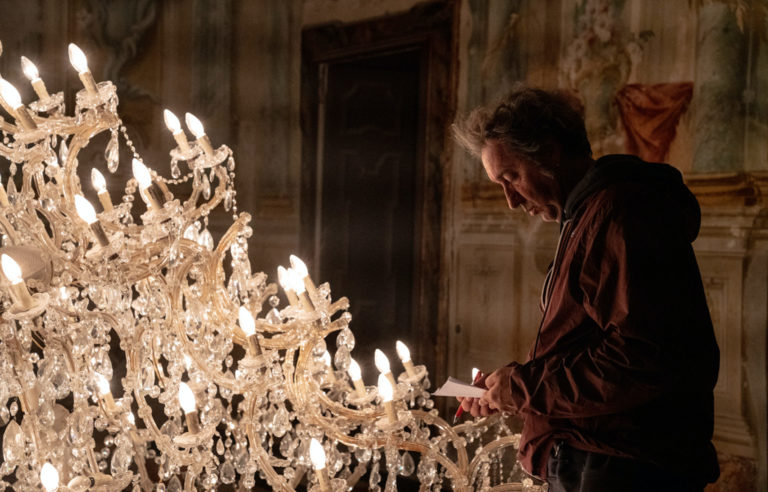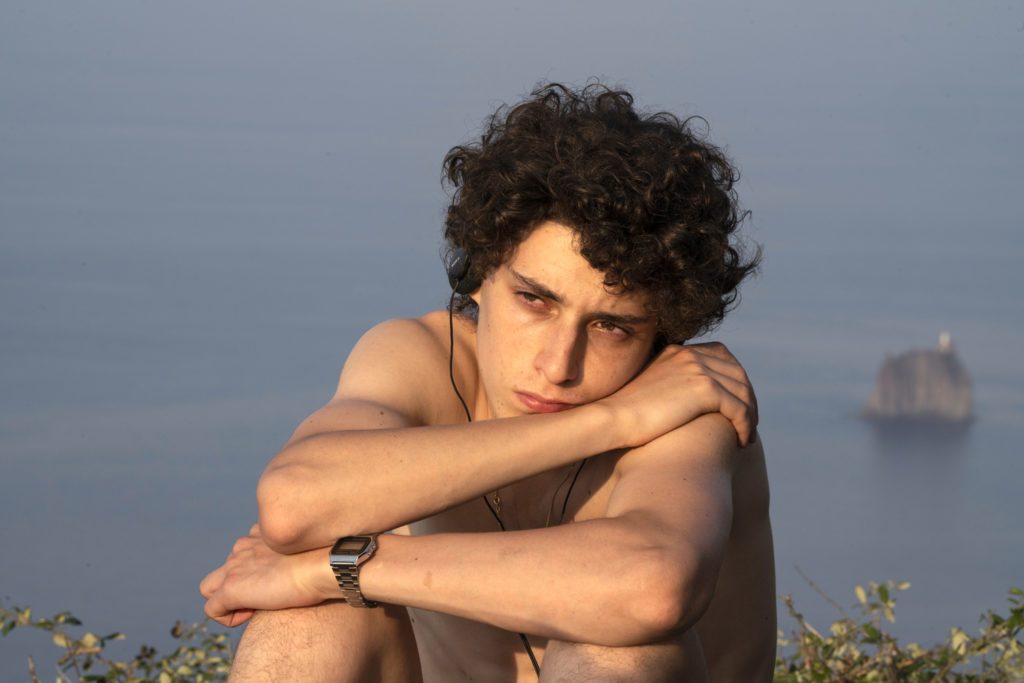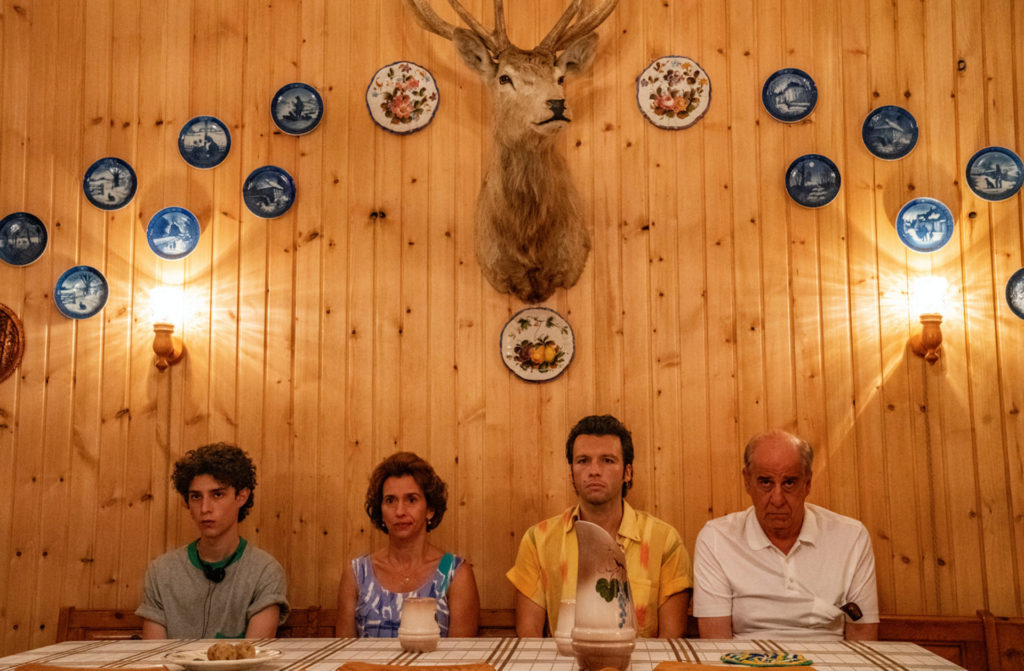
Synopsis : From Academy Award-winning writer and director Paolo Sorrentino (Il Divo, The Great Beauty, The Young Pope) comes the story of a boy, Fabietto Schisa, set in the tumultuous Naples of the 1980s. The Hand of God is a story full of unexpected joys, such as the arrival of football legend Diego Maradona, and an equally unexpected tragedy. Fate plays its part, joy and tragedy intertwine, and Fabietto’s future is set in motion. Sorrentino returns to his hometown to tell his most personal story, a tale of fate and family, sports and cinema, love and loss.
Q&A with Director Paolo Sorrentino
Q: How much is real and how much is fabricated? Was Diego Maradona always part of the real narrative of you growing up?
PS: Yes, for my city and for my imagination, Maradona was a miracle that changed our life. He was an example of the freedom and wild life for young people like me. When these things happened it was our dream of an example to follow. Under mysterious circumstances, he saved my life as I show in the movie. So he is more important for other people now.
Q: Are you superstitious in real life — it seemed like a miracle is something you really believe in.
PS: I am superstitious because in my city, everybody is. [laughter.] That’s because I imitate other people.
Q: There are so many great people in your cast, but casting Fabietto is a crucially important. You have to get the right actor, and Filippo Scotti is really terrific. How did you cast him and where did you find him?
PS: My casting director saw all the young actors in my city and she found him. He was the right guy. He’s a good actor, but a little shy and completely uncomfortable with the world. It was exactly the same feeling that I had when I was young and so I would keep everything nice for myself, even with a face more beautiful than mine, this is an artistic license that is very significant.

Q: Fellini is such a big part of Italian cinema, He looms large in the background to this film. Was he a big influence on you? What was your relationship to Fellini? What are your cinematic influences in general, are they Italian or otherwise?
PS: My relationship with Fellini [was] that he would often come to my city Naples to find the right faces for his movies. He thought that Naples [was a city of ] cold and weird faces of some women and men. it was true. So I went with my brother.
What I didn’t put in the movie is when my brother made a joke on my mother and father — he said that he was the main character of the next movie being made. My mother was very happy because he was very lazy, so she was very happy that he found his way.
As to my relationship with Fellini. I love Fellini because he doesn’t love the blocked-in movie and for me it’s a two-shot so it’s my problem. In a deeper way, he would stage always characters that don’t have the feeling that the world – it is not the ground under the feet of the people and that this is a feeling that I have all the time. This is the main reason why I love film.
Q: What were some other cinematic coincidences that evoke that same feeling of “under the feet,” as you say? Cinema has impacted on you in a similar way because you’re talking about something specific being elevated. Like it’s about taking reality away and drifting off into something different?
PS: I was young in the ‘90s, so I grew up with many American directors in the 90s that made wonderful movies, like QuentinTarantino, Ang Lee, and Spike Lee. There are many other directors as well. There are many directors that I loved when I was young, and I love them today as well.
Q: You talked about this little prank that you and your brother did to your family. There are pranks in here, done to the mother in the Schisa family. It also feels like it’s autobiographical in that the pranks here are very specific.
PS: Yeah, the pranks are true. My mother was a teacher of pranks, and yes, life was boring and the telefax was a big chance to move things.
Q: She would do stuff like that?
PS: Yeah, she did many, many of them. But I am not as good at it like my mother was. She was very, very good at that.

Q: What about the monk, because the monk is an interesting device [you use] at the beginning of the film. We hear them talked about him a little bit — Fabietto tells Patrizia that he believes her and we see the monk at the end. What was the symbology of that — what you were trying to do with that?
PS: In my city many people saw the monk, and pray to him. The boy dressed up like him. My father saw the monk. But, I don’t know. It’s very mysterious. Of course, the accounts of people who saw the monk when I was a kid was something that was embedded in my memory, and so as soon as I made a movie about it I had [to include] the monk.
I don’t know what it means. During the Second World War, many people saw the monk. And the monk brought money. So one of the legends about the monk, is that a woman that had a lover and received money from the lover — and the husband found the money in the pocket — the woman said, “I’ll shoot the monk.”
My father saw the money. So the exact legend does not work — the legend of women and lovers.
Q: The director Antonio Capuano is someone you met and had a relationship with?
PS: When I was a young screenwriter, I wrote just for myself. I was not a screenwriter, I was an aspiring screenwriter. I gave him a script and he read it. He called me, we went to drink coffee and he said, “Okay, let’s write the script together.” And for me, it was unbelievable that this thing happened so fast.
Check out more of Nobuhiro’s article.
Here’s the trailer of the film.

